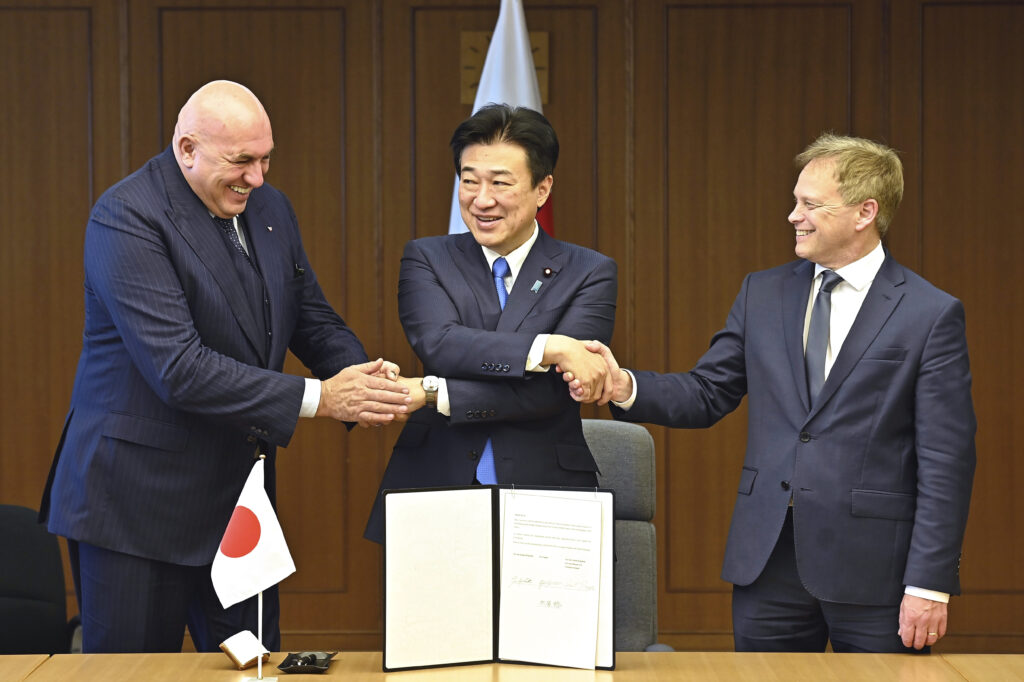
- ARAB NEWS
- 05 Jul 2025

TOKYO: After the Japanese government decided late last month to allow the export of a next-generation fighter jet that Japan will develop jointly with Britain and Italy, concerns remain about the effectiveness of restrictions to prevent such exports from fueling conflicts abroad.
Some also question the lack of parliamentary involvement in the major policy shift on defense equipment exports.
The decision paves the way for Japan to export internationally developed finished defense equipment to third countries, but such exports will be limited to the next-generation fighter jet for the time being, and the government has stressed that the exports will be under strict regulations.
“We have explained through parliamentary deliberations the need to transfer (defense equipment) to third countries,” Chief Cabinet Secretary HAYASHI Yoshimasa said at a press conference after the decision. “We will continue to offer sincere explanations to gain further understanding from the public,” he added.
However, the government did not recognize the need to export the next-generation fighter jet when it decided on the trilateral joint fighter jet project in December 2022, according to Prime Minister KISHIDA Fumio’s parliamentary remarks.
It later became clear that Japan needed to align itself with the two partner countries, which were focused on reducing costs through exports, Kishida explained. This caused discomfort in Komeito, the coalition partner of Kishida’s Liberal Democratic Party.
Nevertheless, a Japanese Defense Ministry official involved in negotiations on the joint fighter jet project said, “Britain wouldn’t have agreed (to the project) without exports.” A Foreign Ministry official also involved in the talks said that exports were an “important precondition.”
These statements by the sources suggest that some in the government were aware of the need to export the envisioned fighter jet, and that communication within the government was inadequate.
The government seemed to be trying to impress upon the public that the export of the fighter jet will be managed in a restrictive manner. While making the decision to allow the export, the government promised to require cabinet approval for each export case.
The government also drew up three restrictions: limiting the export of internationally developed defense equipment to the fighter jet for the time being, allowing the fighter jet to be transferred only to countries that have signed agreements with Japan on the transfer of defense equipment and technology, and avoiding exports to countries involved in armed conflicts.
Meanwhile, a revision of the implementation guidelines for Japan’s three principles on defense equipment transfer does not require the involvement of the Diet. It is the responsibility of the government’s National Security Council.
Therefore, the export of the fighter jet can be decided through “closed-door talks” among the government and ruling parties, with or without mandatory cabinet approval for each export, Akira Koike, head of the Japanese Communist Party’s secretariat, has argued.
The export of internationally developed defense equipment other than the fighter jet is believed to be possible through a revision of the implementation guidelines. “We just have to make an addition,” said an LDP lawmaker.
Currently, there are 15 countries that have concluded defense equipment and technology transfer agreements with Japan. As Japan’s National Defense Strategy calls for promoting efforts to conclude such agreements, the government is in negotiations with several countries now, according to the Defense Ministry.
These agreements prohibit the use of transferred defense equipment for invasion or other purposes. But this cannot be guaranteed if countries using the fighter jet from Japan violate their agreements with Japan to launch invasions or attacks that violate international humanitarian law.
In such a case, the government plans to demand that these countries rectify the situation and to stop supplying them with fighter jet parts. “There would be no problem with (the Constitution’s) pacifism,” Defense Minister KIHARA Minoru has told the Diet.
However, these countries may be able to continue using the fighter jet if they can obtain parts from Britain or Italy. A Defense Ministry source admitted that the management of the exported fighter jet will be based on “a gentleman’s agreement.”
JIJI Press